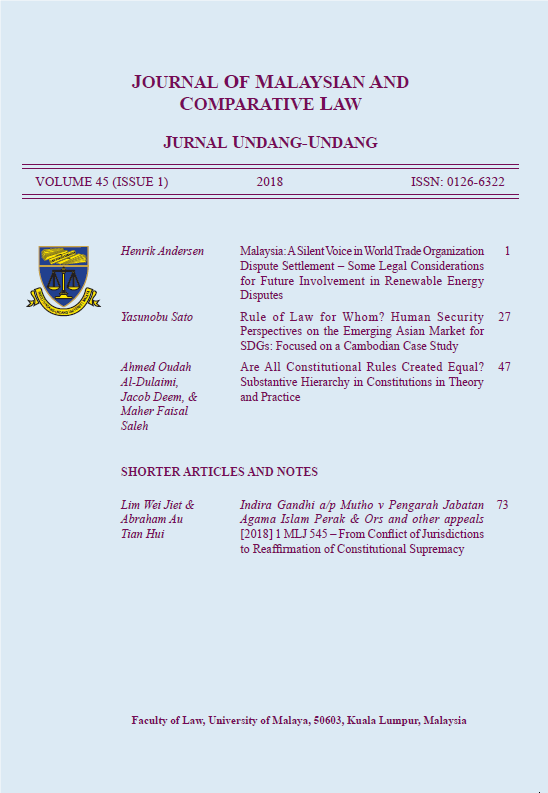Are All Constitutional Rules Created Equal?
Substantive Hierarchy in Constitutions in Theory and Practice
Keywords:
Substantive hierarchy, constitutional rule, constitutional principles, conflict of constitutional rights, conflict, rightsAbstract
This article examines whether all constitutional rules and principles have the same value and occupy the same level of importance within a constitutional system, or is there some kind of hierarchy among them. The significance of these questions arises when constitutional rules come into conflict with one another. In this case, constitutional courts will be in an unenviable position to decide on such conflict, because this conflict is not between rules in different positions within the legal order (e.g., constitutions v normal legislation), but between rules whose values are derived from one source: the constitutional order. This paper suggests a number of mechanisms to overcome this conflict. Firstly, it argues that such a conflict must be characterised as a significant dilemma, and declared as a constitutional problem. Secondly, it argues that the existence of substantive hierarchies within constitutions must be textually and judicially recognised. Finally, it proposes that this conflict cannot be overcome by adopting the power that has been assigned to the constitutional court as a negative legislator. However, there is a need to extend the role of constitutional courts to become positive legislators in order to reconcile the conflicted constitutional provisions without stripping the constitutional values from them. To achieve this end, this article develops a framework for understanding how conflicting constitutional principles should be reconciled by exploring the idea of substantive hierarchies within constitutions.
Downloads



